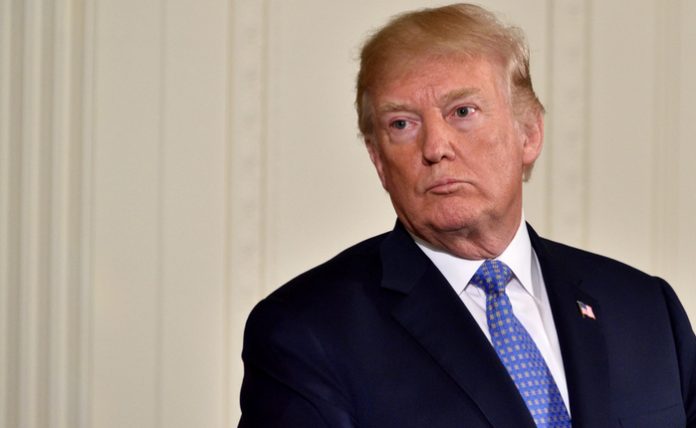Just a few days ago, international affairs were major market movers. Now analysts are looking at the domestic picture for U.S. stocks and trying to discern what’s going to happen over the short term.
Tracking indices is one way to keep an eye on the pulse of the American markets – we can see that the S&P 500 fell about 1% in today’s trading session by press time.
One of the factors, according to analysts, is something that’s been on to of the news cycle for over 24 hours – that very public negotiation over a potential government shutdown that happened between the president and top Democratic lawmakers.
After yesterday’s session, Chuck Schumer indicated that participants were blindsided by the president’s ‘frankness’ and press members were reporting that Trump said he’d be “proud” to have a government shutdown unless he gets border wall funding.
Given that economists and policy-makers mostly see a border wall as a non-starter, and experts have shown why it makes no sense in terms of actual immigration policy when the lion’s share of immigrants are announcing at ports of entry, it seems like tying the border wall to a shut-down is a pretty clear threat. However, although so many pundits have wailed about the prospects of a government shutdown hurting the economy and causing confusion, some don’t seem to be as worried this time around.
A MarketWatch piece yesterday shows a mixed track record for actual government shutdowns according to their impact on the index – but it does concede that in general, shutdowns are not great for the stock market.
“Since 1976, the S&P 500 averages a daily gain of 0.04%, according to Dow Jones Market Data, and this average performance would have beaten the shutdown performances in 16 of the 20 examples (in the report),” writes Chris Matthews at Marketwatch.
Matthews also cites a recommendation by Mark Stoeckle the CEO of Adams Funds.
“Events like a government shutdown are just part of the growing noise coming out of Washington that investors should ignore,” Stoeckle reportedly said.
Others agree.
“A government shutdown sparked by a fight between President Donald Trump and Democrats over his demand for a border wall would have a smaller impact than others in recent years.” Write Erik Wasson, Laura Litvan, and Christopher Flavelle at Bloomberg. “An estimated 400,000 federal employees would work without pay and 350,000 would be furloughed, according to a congressional Democratic aide. The essential employees who work during a shutdown are paid retroactively when the government reopens and payroll operations resume. After previous shutdowns, Congress also has passed legislation to retroactively pay furloughed workers.”
However, others who have been in government for quite a while want to make clear that even if a government shutdown or news of a possible government shutdown has only a minimal effect, that doesn’t mean it’s harmless.
There’s a rhetorical price, they contend, to threatening to shut down any government agency, no matter how small.
“I find it incomprehensible that we have a president of the United States, the leader of our government, who wants to shut down the government, impact the livelihood of some 750,000 federal workers and seven government agencies, which impact millions of Americans,” said Bernie Sanders in a recent interview, according to RealClearPolitics. “I think it’s totally absurd and disgraceful…”
The rank and file of government workers who don’t particularly enjoy delays in pay would probably agree. As for the markets, watch over the next 72 hours to get a better idea of how domestic policy and rumors of domestic policy are directing the indices.










